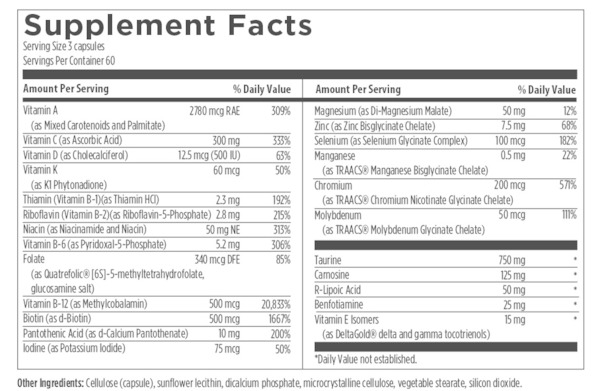

This narrative review aims to examine the scientific evidence that supports the role of key selected vitamins and minerals in health outcomes related to fatigue, as well as psychological and cognitive functions. An enhanced feeling of well-being, a reduction in mental and physical fatigue and improvements in psychological and cognitive functions are also among the commonly reported motivations for taking supplements. Indeed, this is one of the most frequent reasons for consumption given by supplement users. In such cases, vitamin and mineral supplementation may become a means to meet adequate intake. Although the majority of Americans consume sufficient amounts of most nutrients to offset clinical symptoms, in many individuals intake falls below the EAR or Adequate Intake levels. For example, 68% of Mexican women have folate (vitamin B9) intakes below the estimated average requirement (EAR), and thiamine (vitamin B1) dietary intakes are below EAR in 55% of Turkish adults of both genders. This can lead to a significant proportion of the population not meeting their optimum dietary needs, in emerging and developed countries. There is ample evidence, however, that food choice or availability often preclude such a diet. A varied and balanced diet, rich in nutrient-dense foods such as fruits, vegetables and dairy products, is able to provide the amounts of vitamins and minerals needed. Conversely, subclinical or inadequate intakes (sometimes referred to as ‘insufficiencies’) are frequent worldwide, albeit with variations according to age groups and country. Such clinical deficiencies are relatively uncommon, particularly in developed countries. However, the available scientific rationale for these is often based on theoretical biochemical grounds and clinical features seen during frank clinical deficiencies, rather than on robust, empirical, physiological data. In many other instances, however, the nature of the involvement of micronutrients in molecular and cellular reactions that translate into physiological and functional effects is poorly understood.Ĭlaims regarding the effects of vitamins and minerals on fatigue, cognition or psychological functions are authorized in many countries. As an example, vitamin A is a component of the pigment rhodopsin located in the retina, that enables visual processes and prevents blindness. The link between biochemical and physiological functions is established for some vitamins and minerals, as is their role in clinical outcomes. Recommendations for appropriate dietary intakes aim to ensure that most of the population receive amounts fulfilling their physiological needs. The essential nature of vitamins and minerals for human health was demonstrated more than a hundred years ago.


 0 kommentar(er)
0 kommentar(er)
